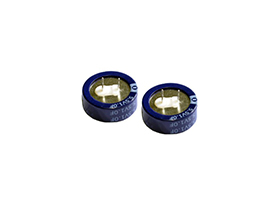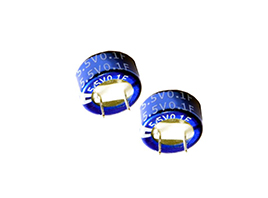Consulting phone:
135-3037-2041
(Mr.Wang)
A supercapacitor is an electrochemical element that stores energy through polarized electrolytes. It can be used as a power source with special properties between traditional capacitors and batteries. The energy storage process is reversible and can be repeatedly charged and discharged. Hundreds of thousands of times. Its outstanding advantages are high power density, short charge and discharge time, long cycle life, and wide operating temperature range . This article focuses onsome key parameters that need to be understood when selecting and applying supercapacitors .
Voltage Voltage
Supercapacitors have a recommended operating voltage or an excellent operating voltage, which is determined by the capacitor's longer operating time at a higher set temperature. If the operating voltage is higher than the recommended voltage, the life of the capacitor will be shortened. If the overvoltage is relatively long, the electrolyte inside the capacitor will decompose to form a gas. When the pressure of the gas gradually increases, the safety hole of the capacitor will be broken or may be broken. break through. Short-time overvoltages are tolerated by capacitors.

Polarity
Supercapacitors use symmetrical electrode designs, that is, they have a similar structure. When the capacitor is first installed, each electrode can be used as a positive or negative electrode. Once the capacitor is 100% fully charged, the capacitor will become polarized. Each supercapacitor has a negative sign on the shell or logo. Although they can be shorted to bring the voltage down to zero volts, the electrodes still hold a small fraction of the charge and reversing the polarity is not recommended at this time. The longer the capacitors are charged in one direction, the stronger their polarity becomes. If a capacitor is charged in one direction for a long time and then changes polarity, the life of the capacitor will be shortened.
Ambient Temperature
The normal operating temperature of supercapacitors is -40 °C to 70 °C, and the combination of temperature and voltage is an important factor affecting the life of supercapacitors. Under normal circumstances, the life of supercapacitors will decrease by 30% to 50% for every 10°C increase in temperature. If it is impossible to reduce the operating temperature, the voltage can be reduced to offset the negative impact of high temperature on the capacitor. For example, if the operating voltage of the capacitor drops to 1.8V, the capacitor can operate at a high temperature of 65°C. If the supercapacitor is used at a temperature lower than room temperature, the supercapacitor can be operated above the specified voltage without accelerating the degradation inside the supercapacitor and affecting the life of the supercapacitor, and improving the operating voltage of the supercapacitor at low temperatures. , which can effectively offset the increase in internal resistance of supercapacitors at low temperatures. At high temperature, the internal resistance of the capacitor will increase, and this change is permanent and irreversible (the electrolyte has been differentiated). At low temperature, the increase in the internal resistance of the capacitor is a temporary phenomenon, because the electrolyte is viscous and The increase in susceptibility reduces the speed of ion movement.

Discharge Characteristics
When a supercapacitor discharges, it will discharge according to a slope curve. When an application has clearly defined the capacitance and internal resistance requirements of the capacitor, it is important to understand the influence of resistance and capacitance on the discharge characteristics. In pulse applications, resistance is a very important factor, and in small current applications, capacity is an important factor.